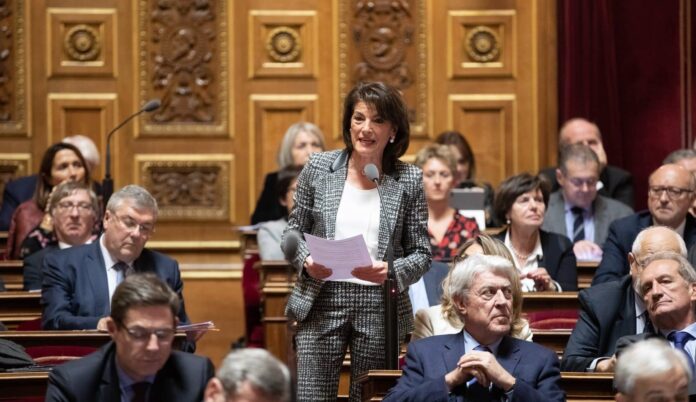Dominique Estrosi Sassone questioned the government on the consequences of the summer suspension of the MaPrimeRénov’ program. The Housing Minister assures a resumption in September, but concerns persist in the construction sector.
In the Senate chamber, Dominique Estrosi Sassone, senator for Alpes-Maritimes, spoke out against the temporary suspension of MaPrimeRénov’, as announced by the Minister of Economy. She criticized a measure with destructive effects for households and artisans, highlighting a chronic instability of the program since its launch.
“Changing the MaPrimeRénov’ rules for the 14th or 15th time since 2020 […] is obviously saving budget money now but losing much more tomorrow”, declared Dominique Estrosi Sassone, emphasizing the direct impact on the energy renovation sector. According to her, this pause deprives professionals of visibility and discourages households from undertaking work.
A response focused on combating fraud
In response, the Minister of Housing, Valérie Létard, reminded that the program was not abandoned but reorganized. “We will continue, with determination, to support Ma Prime Rénov’”, she assured, noting a maintained budget of 3.6 billion euros, supplemented by several hundred million from energy savings certificates.
The minister explained that this suspension, scheduled from July 1 to September 15, was meant to allow a full review of the files to exclude those tainted by fraud. She clarified that applications submitted by the end of June would be processed and paid, provided they are complete and compliant. The planned resumption in mid-September is expected to be accompanied by enhanced control measures.
“We will redefine how to be more consistent, faster, and safer in combating fraud”, she stated, referring to strengthened collaboration between the Ministries of Budget and Housing.
A tense summer for industry stakeholders
Despite the government’s explanations, concerns remain. Dominique Estrosi Sassone emphasized that the repeated “stop and go” actions undermine the credibility of the energy transition policy. She questioned the absence of a clear strategy, both ecologically and economically, and asked the government whether it intended to keep its commitments.
There seems to be a point of agreement between the two sides: the need to fight against fraud without penalizing households or companies involved in renovation. It remains to be seen whether the resumption announced for September will reassure the stakeholders of a sector waiting for stability.


